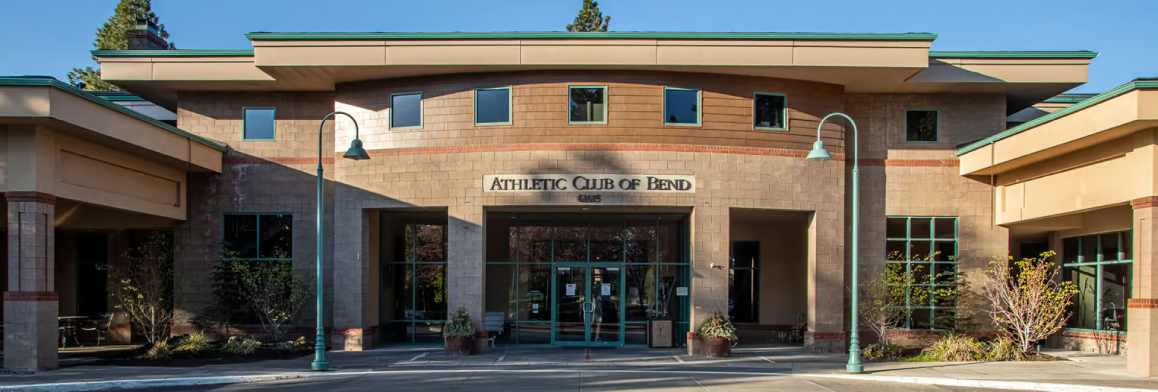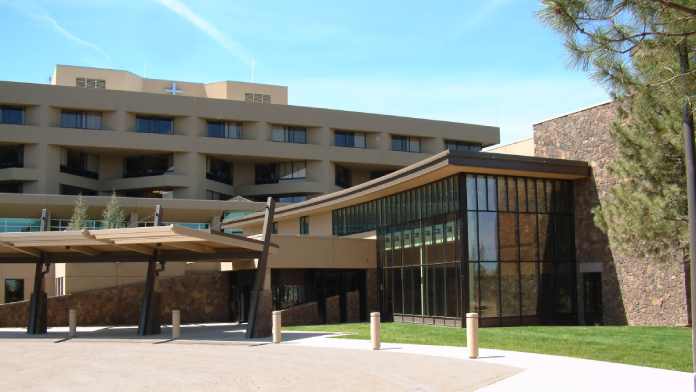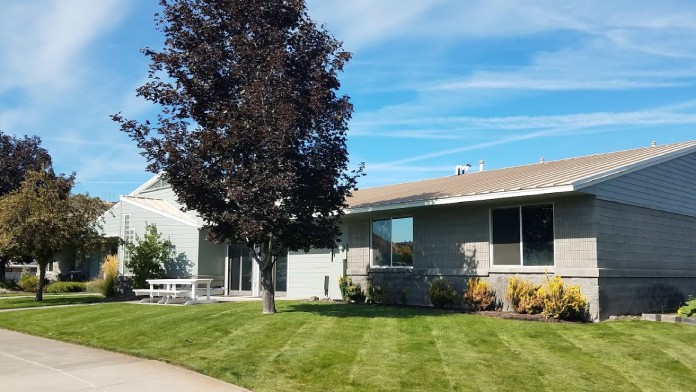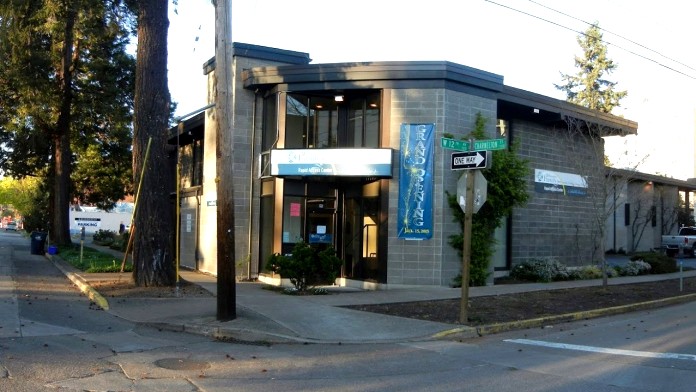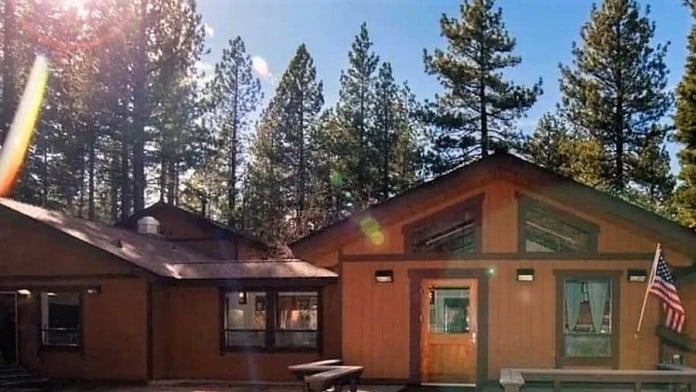The people are rude and unhelpful. The place is in a great area but the people is always angry.
About Serenity Lane
The outpatient program in Bend is a 10 week program. During treatment, clients receive addiction education to learn about substance use disorders. Clients participate in three-hour individual and group therapy sessions three times a week. One of the nice things about the program is they offer morning and evening groups so you can accommodate work and family while receiving treatment. The family is also included during the initial 10 week program via telehealth.
A unique aspect of this program is the follow up recovery support. You’ll have weekly 90 minute sessions for up to 24 months after you complete the 10 week program. The follow up sessions may include your significant other. During the sessions, you’ll work on identifying and managing life stressors to help you better cope with the early stages of recovery.
The Bend facility also has DUII programming. In Oregon, the laws for driving under the influence are different than in many other states. If you get pulled over and are suspected of drunk driving you will be charged with driving under the influence of intoxicants (DUII). This covers any type of impaired driving, including driving under the influence of prescription or other drugs.
Serenity Lane’s DUII programming is offered on Fridays through telehealth. They have a 5:30-7:00 p.m. class and a 7:30-9:00 p.m. class. The facility also provides employer/EAP services and 12 Step participation.
Latest Reviews
Rehab Score
Gallery
Accepted Insurance


Other Forms of Payment
Private insurance refers to any kind of healthcare coverage that isn't from the state or federal government. This includes individual and family plans offered by an employer or purchased from the Insurance Marketplace. Every plan will have different requirements and out of pocket costs so be sure to get the full details before you start treatment.
Self-pay involves paying for treatment out of your own pocket. You can use savings or credit, get a personal loan, or receive help from family and friends to fund your treatment. If you don't have insurance or your insurance plan doesn't cover a specific program, self-pay can help ensure you still get the care you need.
Financial aid can take many forms. Centers may have grants or scholarships available to clients who meet eligibility requirements. Programs that receive SAMHSA grants may have financial aid available for those who need treatment as well. Grants and scholarships can help you pai for treatment without having to repay.
Medicaid is a state based program that helps lower-income individuals and families pay for healthcare. Medicaid covers addiction treatment so those enrolled can use their coverage to pay for rehab. When a program accepts Medicaid the client often pays very little or nothing out of their own pocket.
Sliding scale payments are based on a client's income and family size. The goal is to make treatment affordable to everyone. By taking these factors into account, addiction recovery care providers help ensure that your treatment does not become a financial burden to you or your family, eliminating one barrier to care.
Military members, veterans, and eligible dependents have access to specific insurance programs that help them get the care they need. TRICARE and VA insurance can help you access low cost or no cost addiction and mental health treatment. Programs that accept military insurance often have targeted treatment focused on the unique challenges military members, veterans, and their families face.
Addiction Treatments
Levels of Care
Outpatient Services and Recovery Support are a continuation of the planned recovery process for patients and their families. These programs are offered to those patients completing all components of their prescribed treatment. Statistics show that your chances of staying in quality recovery will double if you complete the Recovery Support component of treatment.
Portland's Intensive Outpatient Program consists of ten weeks of group therapy, individual counseling and education about substance use disorder. Treatment groups meet three times per week, on a variety of days and times, so just about any work schedule can be accommodated. No groups are held on Fridays. The family support group meets weekly for three hours.
Intervention services helps family or friends of addicts stage an intervention, which is a meeting in which loved ones share their concerns and attempt to get an addict into treatment. Professional intervention specialists can help loved ones organize, gather, and communicate with an addict. They can guide intervention participants in describing the damage the addict's behavior is causing and that outside help is necessary to address the addiction. The ideal outcome of an intervention is for the addict to go to rehab and get the help they need.
12-step programs are addiction recovery models based on Alcoholics Anonymous (AA). A number of substance abuse programs (including some drug and alcohol rehab centers) use the 12 steps as a basis for treatment. Beginning steps involve admitting powerlessness over the addiction and creating a spiritual basis for recovery. Middle steps including making direct amends to those who've been hurt by the addiction, and the final step is to assist others in addiction recovery in the same way. 12-Step offshoots including Narcotics Anonymous (NA), Cocaine Anonymous (CA), Dual Recovery Anonymous (DRA), Sex and Love Addicts Anonymous (SLAA) and Gamblers Anonymous (GA).
Recovery Support is available for those Serenity Lane patients who complete all prescribed phases of treatment and their spouse/significant other. Recovery Support provides group counseling sessions on a weekly basis for a full year upon completion of Outpatient treatment. Recovery Support is provided weekly for 1 1/2 hours. The Recovery Support Program provides support for identifying and managing stressful life events and to cope with the inevitable ups and downs of early recovery. Recovery is one day at a time. It involves a personal daily recovery program which is developed by you and your counselors.
Treatments
The goal of treatment for alcoholism is abstinence. Those with poor social support, poor motivation, or psychiatric disorders tend to relapse within a few years of treatment. For these people, success is measured by longer periods of abstinence, reduced use of alcohol, better health, and improved social functioning. Recovery and Maintenance are usually based on 12 step programs and AA meetings.
Drug rehab in Oregon offers a full continuum of care for those struggling with addiction. From detox, to inpatient, to outpatient, to aftercare, Oregon residents can find the support they need for recovery. This treatment empowers individuals to replace drug use with positive alternatives and develop a healthier lifestyle.
Many of those suffering from addiction also suffer from mental or emotional illnesses like schizophrenia, bipolar disorder, depression, or anxiety disorders. Rehab and other substance abuse facilities treating those with a dual diagnosis or co-occurring disorder administer psychiatric treatment to address the person's mental health issue in addition to drug and alcohol rehabilitation.
Opioid rehabs specialize in supporting those recovering from opioid addiction. They treat those suffering from addiction to illegal opioids like heroin, as well as prescription drugs like oxycodone. These centers typically combine both physical as well as mental and emotional support to help stop addiction. Physical support often includes medical detox and subsequent medical support (including medication), and mental support includes in-depth therapy to address the underlying causes of addiction.
Substance rehabs focus on helping individuals recover from substance abuse, including alcohol and drug addiction (both illegal and prescription drugs). They often include the opportunity to engage in both individual as well as group therapy.
Programs
Adult rehab programs include therapies tailored to each client's specific needs, goals, and recovery progress. They are tailored to the specific challenges adult clients may face, including family and work pressures and commitments. From inpatient and residential treatment to various levels of outpatient services, there are many options available. Some facilities also help adults work through co-occurring conditions, like anxiety, that can accompany addiction.
Young adulthood can be an exciting, yet difficult, time of transition. Individuals in their late teens to mid-20s face unique stressors related to school, jobs, families, and social circles, which can lead to a rise in substance use. Rehab centers with dedicated young adult programs will include activities and amenities that cater to this age group, with an emphasis on specialized counseling, peer socialization, and ongoing aftercare.
Clinical Services
Serenity Lane's nationally recognized Family Program is an educational program that focuses on repairing relationships damaged by years of destructive chemical dependency. Their program is designed to integrate the patient and the family and to supply vital information about how this disease negatively impacts the family system. The Family Program is offered in a 4-weekend series. Attending all the sessions is highly recommended. This program is an integral part of Serenity Lane's Residential Treatment.
Each counselor has a number of patients, who together, form a group. On weekdays, the group will meet each morning and afternoon to explore problems, feelings, changes and conflicts that come up in the treatment process. This is called group therapy and it is a significant part of residential treatment. Patients will be oriented to group and assigned a "buddy" (another patient who is further along in treatment). This person will help explain the rules and ease transition into the group environment.
In individual therapy, a patient meets one-on-one with a trained psychologist or counselor. Therapy is a pivotal part of effective substance abuse treatment, as it often covers root causes of addiction, including challenges faced by the patient in their social, family, and work/school life.
Nicotine Replacement Therapy (NRT) is a way of getting nicotine into the bloodstream without smoking. It uses products that supply low doses of nicotine to help people stop smoking. The goal of therapy is to cut down on cravings for nicotine and ease the symptoms of nicotine withdrawal.
Amenities
-
Residential Setting
-
Private Setting
Staff & Accreditations
Staff
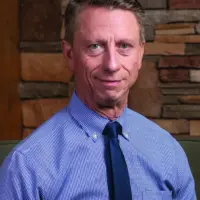
Pete Kerns
President & CEO
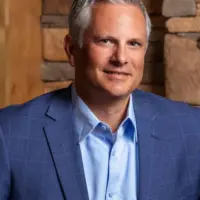
Cody Anderson
Director of Business Development
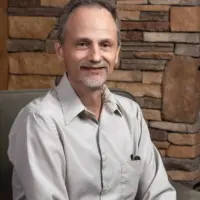
Brian Carlin, CPA
CFO
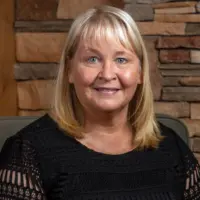
Sue Nicholson, MSN, RN
Director of Medical Operations
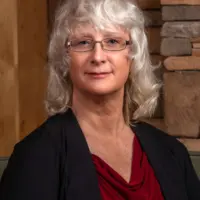
Patrice Crisp, BS, CADC II, QMHA II, CRM II, PSS
Director of Outpatient Clinical Services
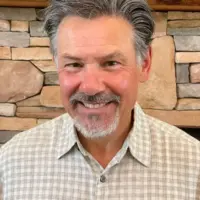
Michael Carnevale, DO
Director of Medical Services
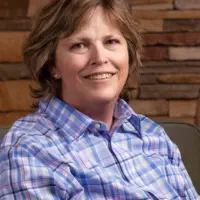
Cheryl Gifford, PhD, CADC III
Director of Mental Health
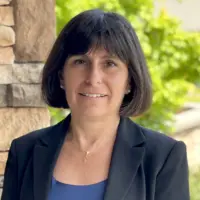
Suzanne Graf
Director of Marketing & Donor Development
Accreditations

The Commission on Accreditation of Rehabilitation Facilities (CARF) is a non-profit organization that specifically accredits rehab organizations. Founded in 1966, CARF's, mission is to help service providers like rehab facilities maintain high standards of care.
CARF Accreditation: Yes
Contact Information
920 SW Emkay Drive
Suite 104
Bend, Oregon 97702

